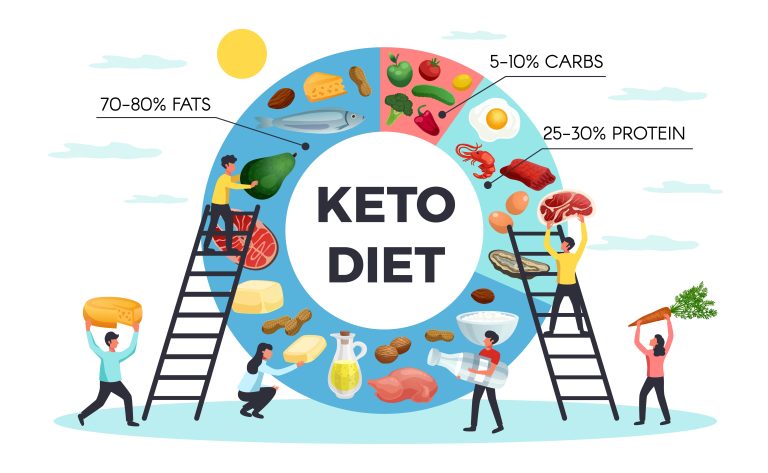Mediterranean Diet 101: A Meal Plan and Beginner’s Guide

The Mediterranean diet has gained popularity in recent years, known for its health benefits and delicious flavors. This eating pattern is inspired by the traditional foods and flavors of countries bordering the Mediterranean Sea, such as Greece, Italy, and Spain. It is characterized by a high intake of fruits, vegetables, whole grains, legumes, nuts, and olive oil, along with moderate amounts of fish, poultry, and dairy products. Red meat is limited in the Mediterranean diet, making it a heart-healthy choice for many individuals.
Mediterranean Diet 101: A Meal Plan and Beginner’s Guide provides a comprehensive overview of how to start and maintain a Mediterranean diet. This resource offers a detailed meal plan with recipes and tips on how to incorporate Mediterranean ingredients into your daily meals. It also includes guidance on portion sizes, food groups to focus on, and ways to stay motivated while following this eating plan. Whether you are a beginner looking to improve your health or a seasoned foodie wanting to try something new, this guide has something for everyone.
In the upcoming sections of Mediterranean Diet 101: A Meal Plan and Beginner’s Guide, we will delve into the health benefits of this eating pattern and provide specific meal ideas for breakfast, lunch, dinner, and snacks. We will also explore the cultural significance of the Mediterranean diet, highlighting the rich history and traditions behind the foods that make up this lifestyle. Additionally, we will discuss how to make sustainable changes to your eating habits and incorporate more Mediterranean-inspired meals into your routine. Get ready to tantalize your taste buds and nourish your body with the Mediterranean Diet 101.
- The Mediterranean diet is inspired by the traditional eating habits of people in countries like Italy and Greece.
- It emphasizes consuming primarily plant-based foods such as fruits, veggies, whole grains, nuts, and seeds.
- Olive oil is a staple in Mediterranean cuisine, used as the main source of fat in cooking and dressings.
- Protein sources in this diet come from lean meats like fish and poultry, as well as legumes and dairy products.
- This eating plan also includes moderate consumption of red wine and limits red meat and processed foods.
- The Mediterranean diet has been associated with numerous health benefits, including a reduced risk of heart disease and improved weight management.
- It is more than just a diet but a lifestyle that promotes social interaction, physical activity, and enjoyment of meals.
- Adopting the Mediterranean diet can lead to better overall health and well-being in the long run.
What is the Mediterranean Diet?
When it comes to the Mediterranean diet, there are several key terms that you should be familiar with. Olive oil is a staple in this diet, providing healthy fats and antioxidants. Another important term is “whole grains,” which are emphasized over processed grains in this eating plan. Fatty fish, such as salmon and sardines, are also commonly consumed for their omega-3 fatty acids. Additionally, fruits, vegetables, nuts, and seeds are all essential components of the Mediterranean diet.
The Mediterranean diet is not just a way of eating – it’s a lifestyle. Originating from the traditional cuisines of countries bordering the Mediterranean Sea, this diet is known for its numerous health benefits. Studies have shown that following a Mediterranean diet can lower the risk of heart disease, stroke, and certain types of cancer. This way of eating is rich in fruits, vegetables, whole grains, and lean proteins, with olive oil as the primary source of fat. The Mediterranean diet also emphasizes enjoying meals with family and friends, as well as being physically active.
Fruits
From juicy apples to sweet strawberries, there are a wide variety of fruits to choose from when following a Mediterranean diet. Some popular options include oranges, grapes, and pears. These fruits are not only delicious, but also packed with vitamins, minerals, and antioxidants that can help support a healthy immune system.
Vegetables
Vegetables are an essential part of any Mediterranean diet. From crunchy cucumbers to leafy greens like spinach and kale, there are endless options to choose from. These nutrient-packed veggies can help support healthy digestion and provide a wide range of vitamins and minerals essential for overall health.
Whole Grains
Whole grains like quinoa, brown rice, and whole wheat pasta are staples in a Mediterranean diet. These grains are rich in fiber, which can help promote satiety and support healthy digestion. They also provide a good source of energy to fuel your body throughout the day.
Lean Proteins
When it comes to protein sources, lean options like chicken, fish, and tofu are popular choices in a Mediterranean diet. These proteins are lower in saturated fat and provide essential amino acids needed for muscle repair and growth. Incorporating these protein sources into your meals can help support overall health and well-being.
Healthy Fats
Healthy fats like olive oil, nuts, and avocado are key components of a Mediterranean diet. These fats are rich in omega-3 fatty acids, which have been linked to numerous health benefits including reducing inflammation and supporting heart health. Incorporating these fats into your diet can help provide essential nutrients and promote overall well-being.
1. What is the Mediterranean Diet?
The Mediterranean Diet is a way of eating based on the traditional foods and drinks of countries surrounding the Mediterranean Sea. It emphasizes eating primarily plant-based foods, such as fruits and vegetables, whole grains, legumes, and nuts. Healthy fats, like olive oil, and lean sources of protein, such as fish and poultry, are also key components of this diet.
Studies have shown that following the Mediterranean Diet can lead to numerous health benefits, including reduced risk of heart disease, stroke, and certain types of cancer. It is also associated with better weight management and improved overall well-being.
2. What foods are included in the Mediterranean Diet?
Foods commonly included in the Mediterranean Diet are fruits, vegetables, whole grains, nuts, seeds, legumes, olive oil, fish, poultry, and moderate amounts of dairy products. Red meat is consumed sparingly, and sweets are typically reserved for special occasions.
The diet also involves enjoying meals with family and friends, savoring food, and being physically active. Red wine is often consumed in moderation, but it is important to note that it is not necessary to drink alcohol to follow the Mediterranean Diet.
3. Can I lose weight on the Mediterranean Diet?
While weight loss is not the primary focus of the Mediterranean Diet, many people find that they naturally lose weight or maintain a healthy weight when following this way of eating. This is likely due to the emphasis on whole, nutrient-dense foods and the avoidance of processed and high-calorie items.
To optimize weight loss on the Mediterranean Diet, it is important to pay attention to portion sizes, choose lean protein sources, and limit consumption of high-calorie foods and beverages. Incorporating regular physical activity into your routine can also support weight loss goals.
4. Is the Mediterranean Diet suitable for vegetarians or vegans?
Yes, the Mediterranean Diet can be adapted to accommodate vegetarian or vegan lifestyles. Plant-based sources of protein, such as legumes, nuts, seeds, and tofu, can be included to meet nutrient needs. Olive oil, fruits, vegetables, whole grains, and dairy alternatives can also be central components of a vegetarian or vegan Mediterranean Diet.
It is important for vegetarians and vegans following this diet to pay attention to their intake of essential nutrients, such as vitamin B12, iron, and omega-3 fatty acids. Consulting with a healthcare provider or dietitian can help ensure that nutrient needs are being met on a plant-based Mediterranean Diet.
5. Are there any potential drawbacks to the Mediterranean Diet?
While the Mediterranean Diet is generally considered to be a healthy and sustainable way of eating, there are some potential drawbacks to consider. Depending on individual preferences and food sensitivities, the high consumption of olive oil, nuts, and seafood may not be suitable for everyone.
Additionally, the emphasis on whole foods and limited processed items may require more time for meal preparation and planning. Some people may also find it challenging to reduce their intake of red meat and sweets, especially if these are major components of their current diet.
6. Can children follow the Mediterranean Diet?
Yes, the Mediterranean Diet can be a healthy eating pattern for children of all ages. By introducing a variety of fruits, vegetables, whole grains, and lean proteins at a young age, children can develop lifelong habits that support their growth and development.
Parents can involve children in meal planning and preparation, as well as model healthy eating behaviors themselves. Encouraging family meals and physical activity can also help children establish a positive relationship with food and instill healthy habits early on.
7. How can I get started with the Mediterranean Diet?
To get started with the Mediterranean Diet, begin by gradually incorporating more fruits, vegetables, whole grains, and healthy fats into your meals and snacks. Experiment with new recipes and flavors to keep meals exciting and satisfying.
It can also be helpful to seek out resources, such as cookbooks, meal plans, and online guides, to learn more about the Mediterranean Diet and get inspiration for meals. Working with a registered dietitian or healthcare provider can provide personalized guidance and support as you transition to this way of eating.
8. Are there any specific meal plans available for the Mediterranean Diet?
Yes, there are many meal plans and recipes available that are tailored to the Mediterranean Diet. These meal plans typically include a variety of nutrient-dense foods, such as fruits, vegetables, whole grains, lean proteins, and healthy fats like olive oil.
You can find Mediterranean Diet meal plans online, in cookbooks, or by consulting with a registered dietitian. These resources can help you plan balanced and satisfying meals that align with the principles of the Mediterranean Diet.
9. Can I eat out while following the Mediterranean Diet?
Yes, it is possible to eat out and still follow the Mediterranean Diet. When dining out, look for menu items that feature vegetables, whole grains, lean proteins, and healthy fats. Choose options that are grilled, roasted, or steamed, rather than fried or heavily sauced.
Eating out can be an opportunity to try new Mediterranean-inspired dishes and flavors. It can also be helpful to ask for dressings and sauces on the side, as well as to practice portion control by sharing meals or taking leftovers home.
10. How can I maintain long-term success with the Mediterranean Diet?
To maintain long-term success with the Mediterranean Diet, focus on creating sustainable habits that support your health and well-being. This may include meal planning, regular physical activity, mindful eating, and finding balance with your food choices.
Remember that the Mediterranean Diet is not a one-size-fits-all approach, so be open to adapting it to meet your individual preferences and needs. Building a support system, setting realistic goals, and celebrating your successes along the way can also help you stay motivated and committed to this way of eating for the long term.
Final Thoughts
The Mediterranean diet is not only about the foods you eat but also the lifestyle you embrace. It emphasizes whole, nutrient-rich foods like fruits, vegetables, whole grains, and healthy fats such as olive oil. Fish and poultry are preferred over red meat, and flavorings like herbs and spices are used instead of salt to season dishes.
Following a Mediterranean diet plan can lead to numerous health benefits, including reduced risk of heart disease, stroke, and diabetes. It is also associated with better weight management and longevity. Remember to stay hydrated with water and limit alcohol consumption, preferably enjoying a glass of wine in moderation with meals.
To successfully adopt the Mediterranean diet, start by implementing small changes such as incorporating more fruits and vegetables into your meals or swapping out butter for olive oil. Over time, you can work towards building a more structured meal plan that aligns with the principles of this heart-healthy way of eating. By focusing on fresh, whole foods and savoring each meal, you can experience the joys and benefits of the Mediterranean diet for a lifetime.






